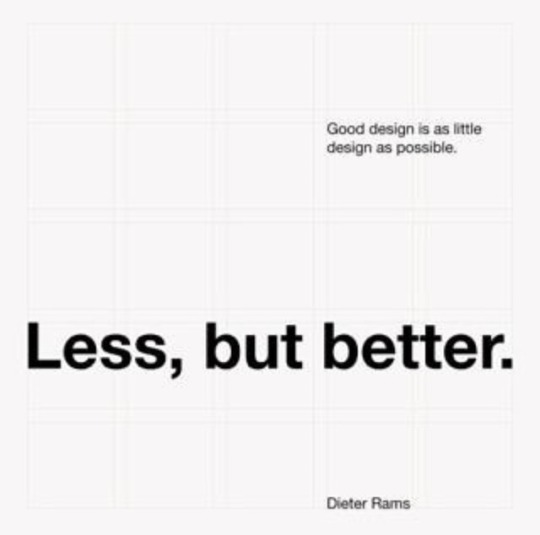Don't wanna be here? Send us removal request.
Text
“Waiting is a movement. People who wait have received a promise that allows them to wait. They have received something that is at work in them, like a seed that has started to grow. This is very important. We can only really wait if what we are waiting for has already begun for us. So waiting is never a movement from nothing to something. It is always a moving from something to something more. Waiting is also active. Most of us think of waiting as something very passive, a hopeless state determined by events totally out of our hands. But none of this passivity marks the waiting in scripture. It is active, because in our waiting we know that something is growing from the ground on which we are standing. Active waiting means to be fully present to the moment in a conviction that something is happening where you are and you want to be present to it.”
— Henry Nouwen, “A Spirituality of Waiting”
936 notes
·
View notes
Text
Would you know who is the greatest saint in the world? It is not he who prays most or fasts most; it is not he who gives most alms or is most eminent for temperance, chastity or justice; but it is he who is always thankful to God, who wills everything that God wills, who receives everything as an instance of God’s goodness and has a heart always ready to praise God for it.
William Law
100 notes
·
View notes
Text
If you live in the dark a long time and the sun comes out, you do not cross into it whistling. There’s an initial uprush of relief at first, then-for me, anyway- a profound dislocation. My old assumptions about how the world works are buried, yet my new ones aren’t yet operational.There’s been a death of sorts, but without a few days in hell, no resurrection is possible.
Mary Karr, Lit
66 notes
·
View notes
Quote
Opportunity dances with those who are already on the dance floor.
Jackson Brown (via yesdarlingido)
87 notes
·
View notes
Quote
The thing that is really hard, and really amazing, is giving up on being perfect and beginning the work of becoming yourself.
Anna Quindlen (via yesdarlingido)
129 notes
·
View notes
Quote
I want to believe that the imperfections are nothing— that the light is everything—
Mary Oliver, House of Light (via yesdarlingido)
2K notes
·
View notes
Photo
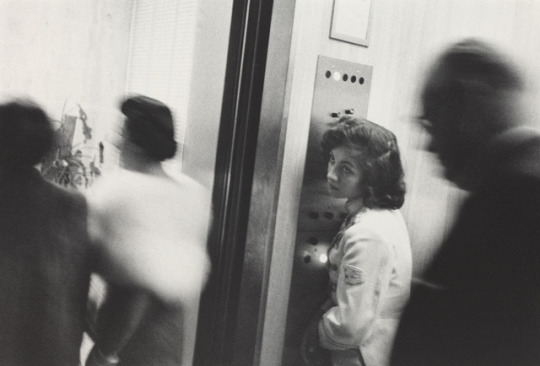
“I stood in front of this particular photograph for probably a full five minutes, not knowing why I was staring at it,“ she says. "And then it really dawned on me that the girl in the picture was me.”
"Robert Frank took about four photos of me without a flash in the elevator. I didn’t know he was taking them. And then when the elevator emptied of its ‘blurred demons,’” she says, “he asked me to turn around and smile at the camera. And I flashed a smile, put my hands on my hips. I hammed it up for about eight or ten frames.
He saw in me something that most people didn’t see. I have a big smile and a big laugh, and I’m usually pretty funny. So people see one thing in me. And I suspect Robert Frank and Jack Kerouac saw something that was deeper. That only people who were really close to me can see. It’s not necessarily loneliness, it’s … dreaminess.”
Sharon Collins, on the photograph Robert Frank took of her in Miami Beach in 1955.
1K notes
·
View notes
Text
“Photography is a highly edited, subjective vision of the world, but the medium presents itself—and is often misused by photographers—as a form of objectivity. There is, of course, no way to make objective documentary work, and any attempt to do so is flawed, misleading and disingenuous. But the fact is that the motivation to make “documentary” work often stems from the desire to present a specific vision of the world as objective fact. Not only is such a working method manipulative, it presumes a lack of agency and visual sophistication on the part of its viewer, who is asked to accept the photographer’s truth in its entirety.”
Gregory Halpern
80 notes
·
View notes
Photo
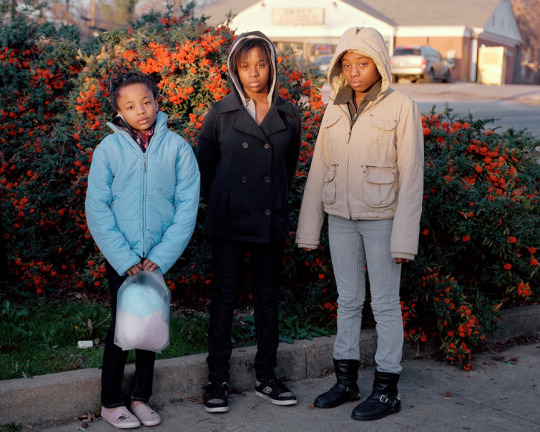
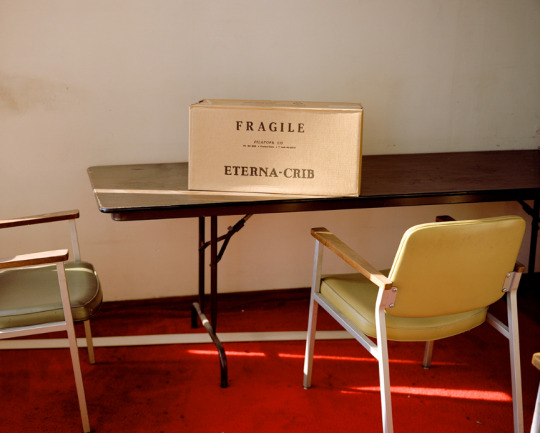
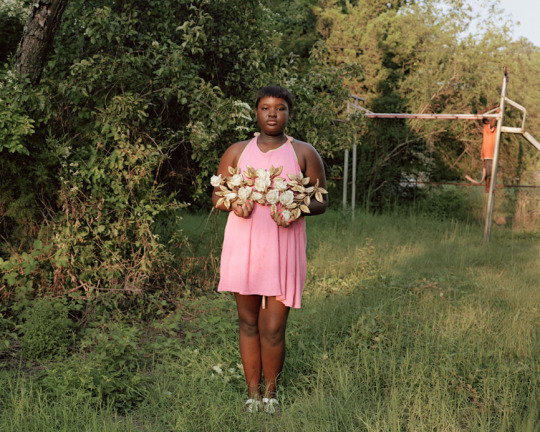
Susan Worsham
From her project By the Grace of God
56 notes
·
View notes
Text
“Photography is a lot like nature. Nature can sometimes be very exciting, but for the most part it is extremely boring. Spend some time in the wilderness. Nothing much happens. Trees move in the wind. An animal might make a noise. The sun moves slowly across the sky. In order to experience what is really going on requires us to slow down and tune into human perception skills that we have lost connection to. We no longer observe and feel the weather forecast, we rely on someone to tell us the weather forecast. We get angry when the forecast is wrong. We no longer observe and feel photography on our own, we rely on curators and blog-urators to tell us what is good photography. We rely on artist statements to explain it all to us, and we get angry when the statements are confusing or pretentious. We get angry and frustrated when we no longer see something new and different every day.”
Christopher H. Paquette, from Embracing Banality
80 notes
·
View notes
Text
“Real artists find answers. The knowledge of the artisan is within the confines of his skills. For example, I know a lot about lenses, about the editing room. I know what the different buttons on the camera are for. I know more or less how to use a microphone. I know all that, but that’s not real knowledge. Real knowledge is knowing how to live, why we live, things like that.”
Krzysztof Kieslowski
92 notes
·
View notes
Text
“I believe that filmmaking is one of the great arts, potentially the greatest, and perhaps the ultimate one. It hasn’t yet reached its full potential for artistic and social importance. I think of filmmaking as a joyful privilege. Who could ask for anything more than to have the opportunity - and the wherewithal - to convey by film a meaningful personal sentiment? Not the kind of message expressed by words only, but to pass on an experience dear to the writer, with the force of a poem, a communication that combines every expressive art - photography, language, music, acting, movement - devised by man, coming out of your own feelings and seeking to reach not only the few people who are close to you but the whole world.”
Elia Kazan, from his essay The Pleasures of Directing
27 notes
·
View notes
Photo
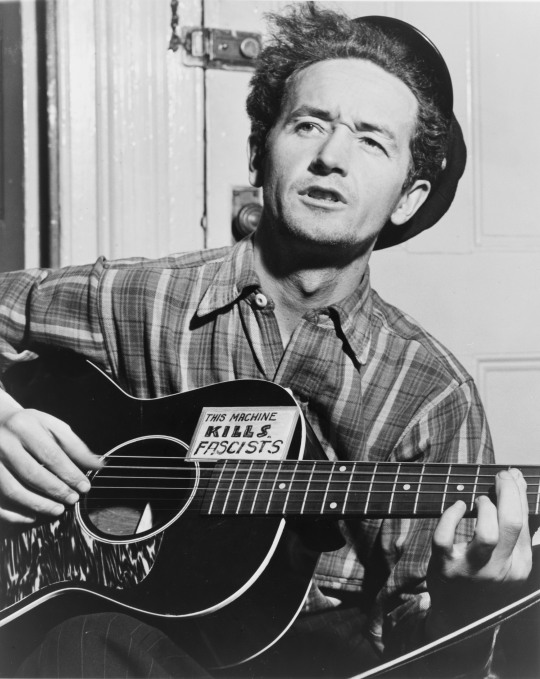
There was a big high wall there that tried to stop me. The sign was painted, said ‘Private Property.’ But on the backside, it didn’t say nothing. This land was made for you and me.
Woody Guthrie Photograph by Al Aumuller for New York World-Telegram
55 notes
·
View notes
Text
Interviewer: “Are there devices one can use in improving one’s technique?”
Capote: “Work is the only device I know of. Writing has laws of perspective, of light and shade, just as painting does, or music. If you are born knowing them, fine. If not, learn them.”
57 notes
·
View notes
Text
“Whatever ideas you have in advance about the subject you want to photograph are just that - ideas. They are not the work itself, but rather the things that lead you to the work. They give you a reason to show up. Usually once you start working, other things happen, you see something else, or you might even find something quite different from what you set out to find.
If you allow your preconceived ideas to be a ball and chain around your ankle, so to speak, the results can often be nothing more than a lifeless illustration of an idea. The ability to improvise and respond in the face of the unexpected is what will make your work interesting, what will make it more resonant and meaningful for you, and probably for the viewer as well.”
Dawoud Bey, from The Photographer’s Playbook
136 notes
·
View notes
